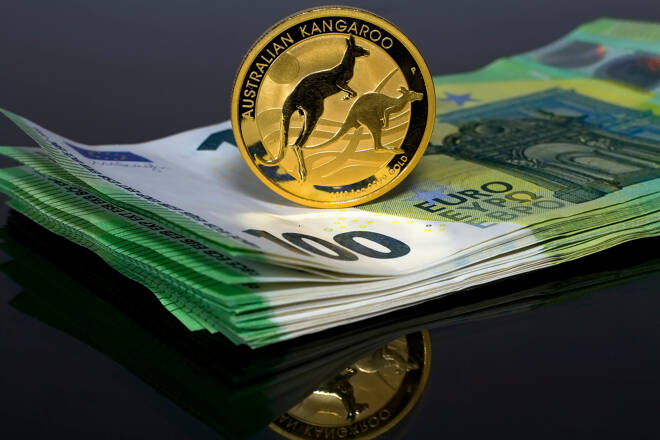Advertisement
Advertisement
AUD to USD Forecast: Australian Dollar Eyes NAB Index, US Jobless Claims
By:
Key Points:
- On Thursday, August 8, business sentiment numbers from Australia will require investor consideration.
- A pickup in business confidence could signal a tightening labor market and a higher-for-longer RBA rate path.
- Later in the session, US jobless claims data could be crucial amid rising uncertainty about the US economy.
Aussie Economic Calendar
Australia’s NAB Business Confidence Index could influence buyer demand for the AUD/USD on Thursday, August 8. Economists expect the Index to increase from 4 in June to 5 in July.
A more marked increase in business confidence may signal increasing investment and job creation. Improving Australian labor market conditions may support wage growth, leading to higher disposable income. This could lead to increased consumer spending that may fuel demand-driven inflation and suggest a more hawkish RBA rate path.
Beyond the headline figure, investors should consider the employment subcomponent. The Employment Index dropped from 5 in May to 0 in June. An unexpected fall in the Employment Index could challenge expectations of a higher for longer RBA rate path. A more dovish rate path could support an AUD/USD drop below $0.65.
Expert Comments on the RBA and the Aussie Economy
NAB Head of Australian Economics Gareth Spence remarked on the June survey, stating,
“Business conditions continued their now long-running easing trend in June. […]. Of note is the sharp decline in the employment index in the month.”
IFM Chief Economist Alex Joiner commented on the challenges the RBA faces, saying,
“The challenge for the RBA to get inflation lower is that ideally it needs to get a greater response from services sectors. But this is largely non-discretionary spending from consumers to providers that have significant pricing power.”
US Economic Calendar
Later in the session on Thursday, US jobless claims could be a crucial data release.
Economists forecast continuing jobless claims to fall from 1,877k in the week ending July 20 to 1,870k in the week ending July 27.
An unexpected increase in continuing jobless claims could reignite investor fears of a US hard landing. Weaker labor market conditions could affect wage growth and reduce disposable income. Falling disposable income may impact consumer spending, which contributes over 60% to the US economy.
On Friday, August 2, the US Jobs Report triggered fears of a hard landing as the US unemployment rate rose from 4.1% in June to 4.3% in July.
A more dovish Fed rate path could support an AUD/USD move toward $0.67 amidst the RBA’s inflation challenges.
Expert Views on the US Labor Market
Arch Capital Chief Economist Parker Ross commented on the US Jobs Report, stating,
“The 1-month private sector job diffusion index, which measures the share of industries recording an expansion of payrolls during the most recent month, dipped below 50 for the first time since the pandemic in July to 49.6.”
Short-Term Forecast: Bearish
Near-term AUD/USD trends will depend on the US jobless claims and Fed commentary. Weaker-than-expected US jobless claims could impact US dollar demand, supporting an AUD/USD move toward $0.67.
Investors should remain alert, with economic data from Australia and the US influencing AUD/USD price trends. Monitor the real-time data, news updates, and expert commentary to adjust your trading strategies.
Stay updated with our latest views and analysis to manage exposures to the forex markets.
AUD/USD Price Action
Daily Chart
The AUD/USD hovered below the 50-day and the 200-day EMAs, confirming the bearish price trends.
A break above the $0.65760 resistance level would support a move to the 200-day EMA. Furthermore, a breakout from the 200-day EMA could bring the 50-day EMA into play.
Aussie business confidence, US jobless claims, and Fed commentary require consideration on Thursday.
Conversely, an AUD/USD drop below the $0.65 handle could signal a fall to the $0.64582 support level.
With a 14-period Daily RSI reading of 38.16, the Aussie dollar could break below the $0.64582 support level before entering oversold territory.
About the Author
Bob Masonauthor
With over 28 years of experience in the financial industry, Bob has worked with various global rating agencies and multinational banks. Currently he is covering currencies, commodities, alternative asset classes and global equities, focusing mostly on European and Asian markets.
Advertisement
